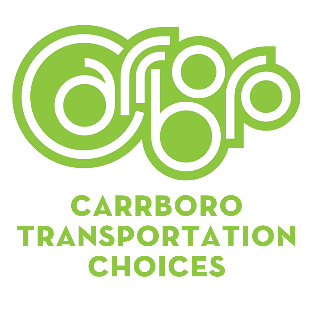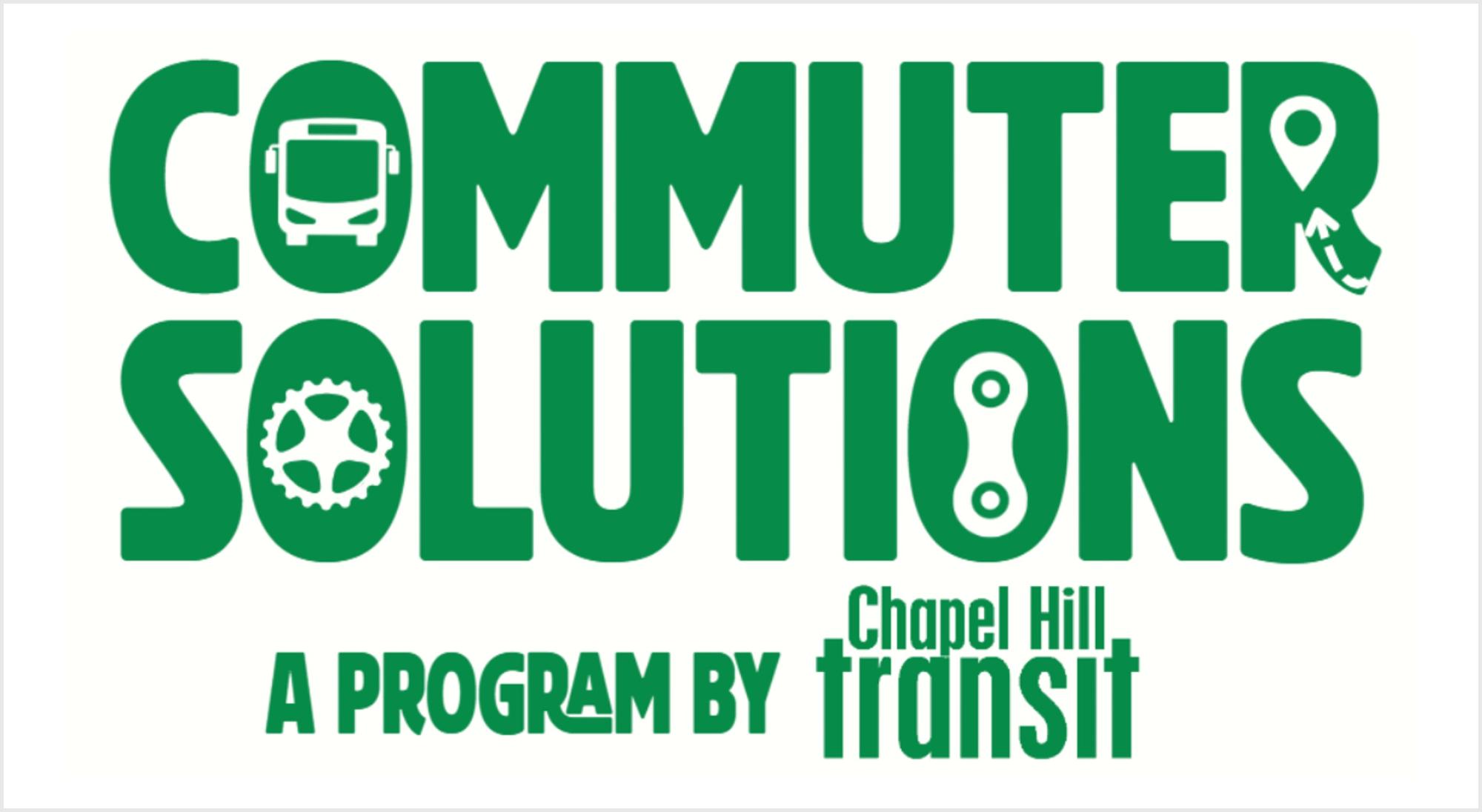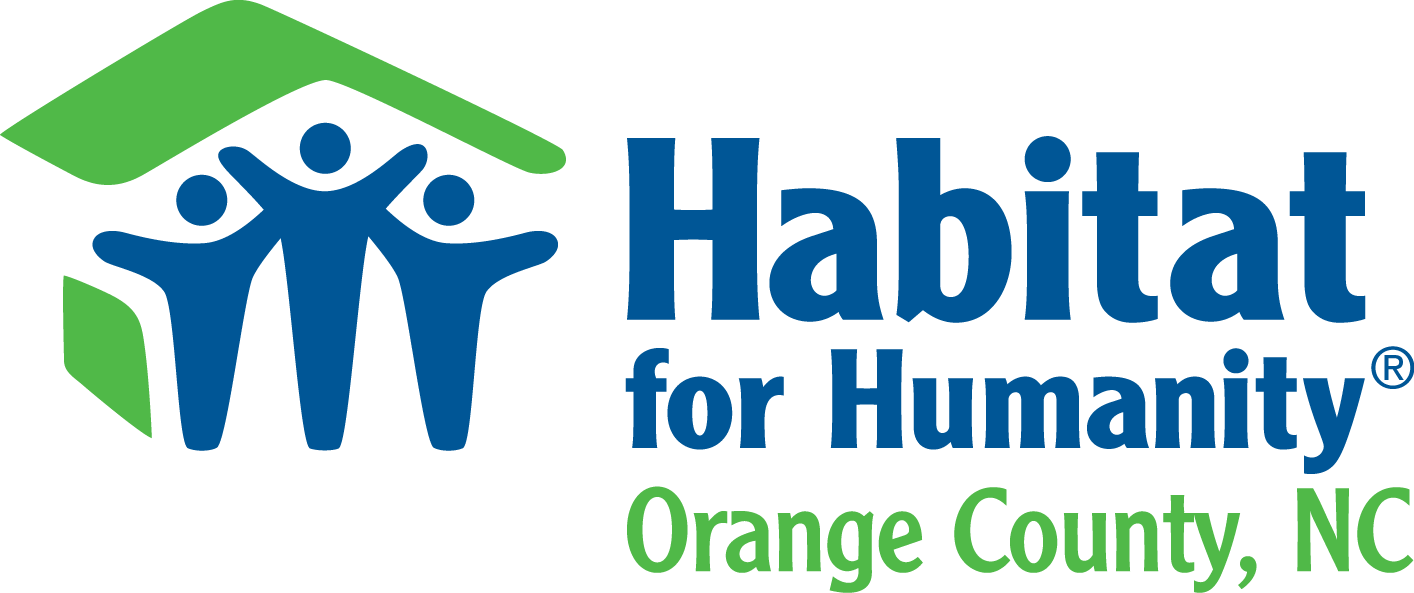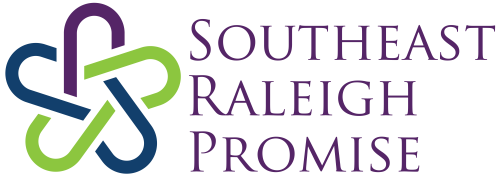FY27 Request for Proposals (closed 2/5/26)
Central Pines Regional Council (CPRC) is now accepting applications for fiscal year 2026–27 (FY27) through the Triangle Transportation Choices transportation demand management (TDM) grant program. Three funding opportunities are available this cycle:
- Traditional RFP
- Innovative and Pilot Projects RFP
- Community-Based and Non-Profit Organizations (CBNP) RFP
A brief overview of eligibility, program priorities, and key requirements for all three RFPs can be found in this FY27 RFP Information Sheet.
RFP SCHEDULE & KEY DATES:
- Grant Period of Performance: July 1, 2026 – June 30, 2027
- RFP Release Date: December 2, 2025
- Virtual RFP Information Session (12/4): View recording here
- RFP Close Date: February 6, 2026, 5 pm ET
- Awards will be announced in early May 2026
RFP Frequently Asked Questions
If you have questions about any of the RFPs, please contact Shuchi Gupta, Grant Manager, at sgupta@centralpinesnc.gov.
About The Triangle Transportation Choices Program
Triangle Transportation Choices, a Transportation Demand Management (TDM) program, is a marketing and outreach effort to promote alternative transportation modes within a seven-county region of North Carolina 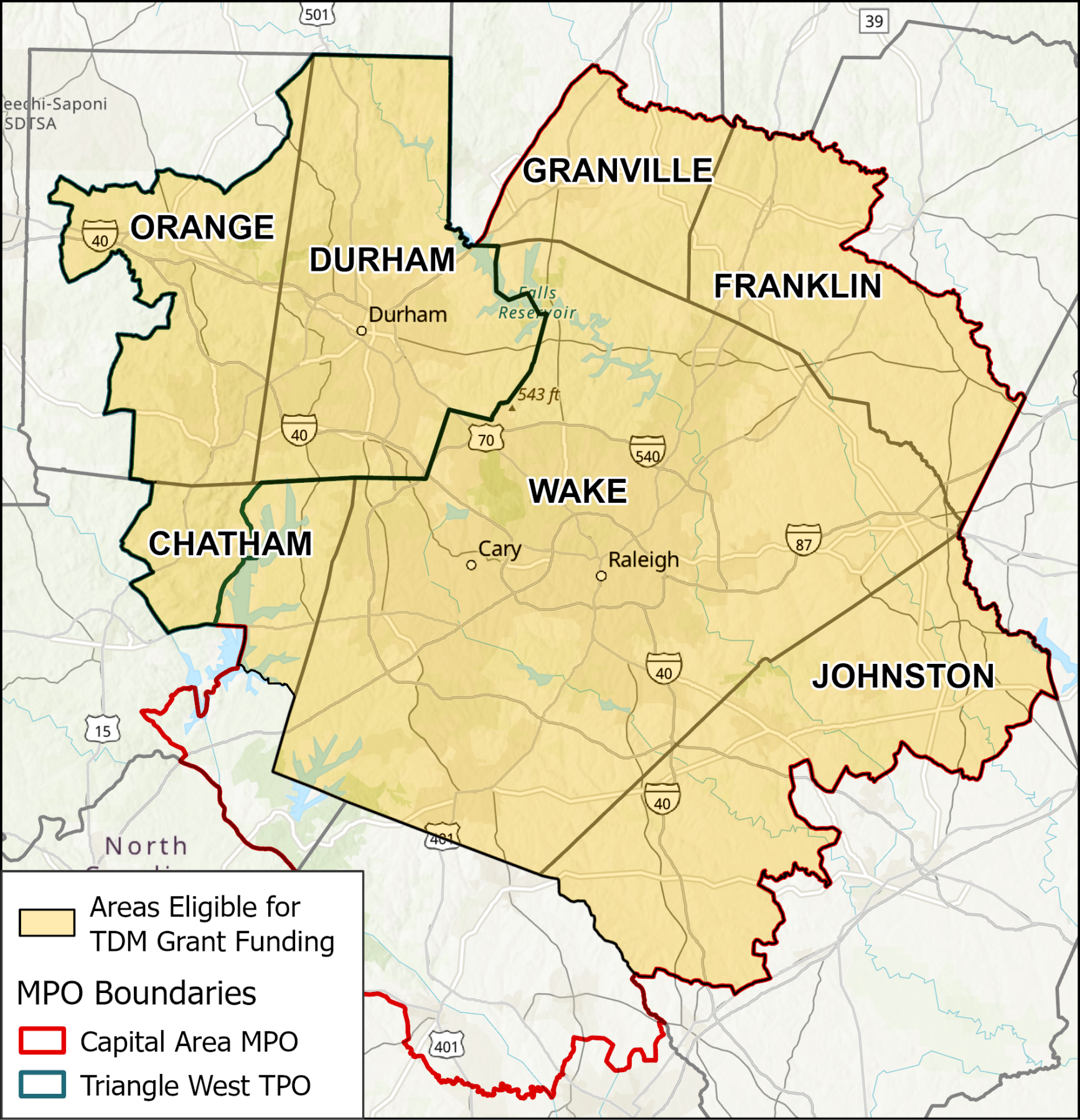 including the Triangle. This seven-county region includes all of Wake and Durham counties and specific areas of five other counties - Orange, Chatham, Franklin, Johnston, and Granville. The exact geographic boundaries for the program can be found in the image below on the left hand side.
including the Triangle. This seven-county region includes all of Wake and Durham counties and specific areas of five other counties - Orange, Chatham, Franklin, Johnston, and Granville. The exact geographic boundaries for the program can be found in the image below on the left hand side.
There are numerous well documented benefits associated with using the alternative transportation modes that encompass Transportation Demand Management (TDM) strategies. Using transit, carpooling, vanpooling, biking, walking or even telecommuting all utilize existing transportation infrastructure, reduce traffic congestion, and improve air quality. Modes such as biking and walking have also been linked with improvements in an individual’s physical and mental health.
The Triangle Transportation Choices program was established in 2007. Since then, its key goal has been to reduce the annual growth in Vehicle Miles Travelled (VMT) by 25%. The program has successfully surpassed this goal every single year. Through the program CPRC also hopes to reduce commuter reliance on single-occupancy vehicles, encourage residents/families to be healthier, reduce transportation costs and be economically resilient. The program historically has been an annual grant aimed at the municipalities, universities, and colleges in the region.
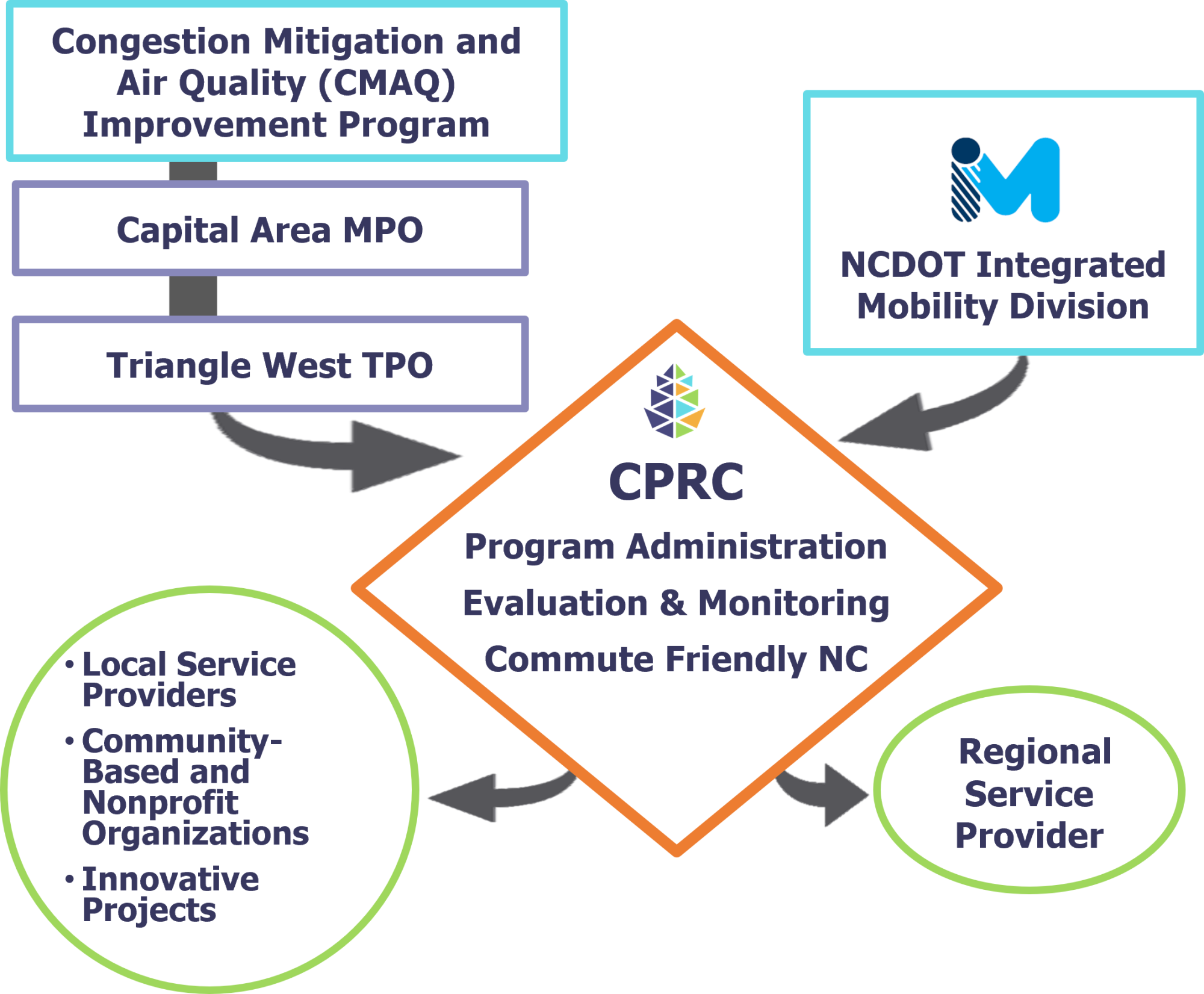
The Triangle Transportation Choices program collaborates with and receives funding from 3 different organizations. Two of the program’s funders are regional Metropolitan Planning Organizations (MPOs). These are the Capital Area Metropolitan Planning Organization (CAMPO) and the Triangle West Transportation Planning Organization (TWTPO). The third funder of the program is the North Carolina Department of Transportation- Integrated Mobility Division (NCDOT-IMD). The graphic on right hand side illustrates the funding and administrative structure of the program. A representative from each of these three funding organizations serves as a voting member in the program’s Oversight Committee (OC).
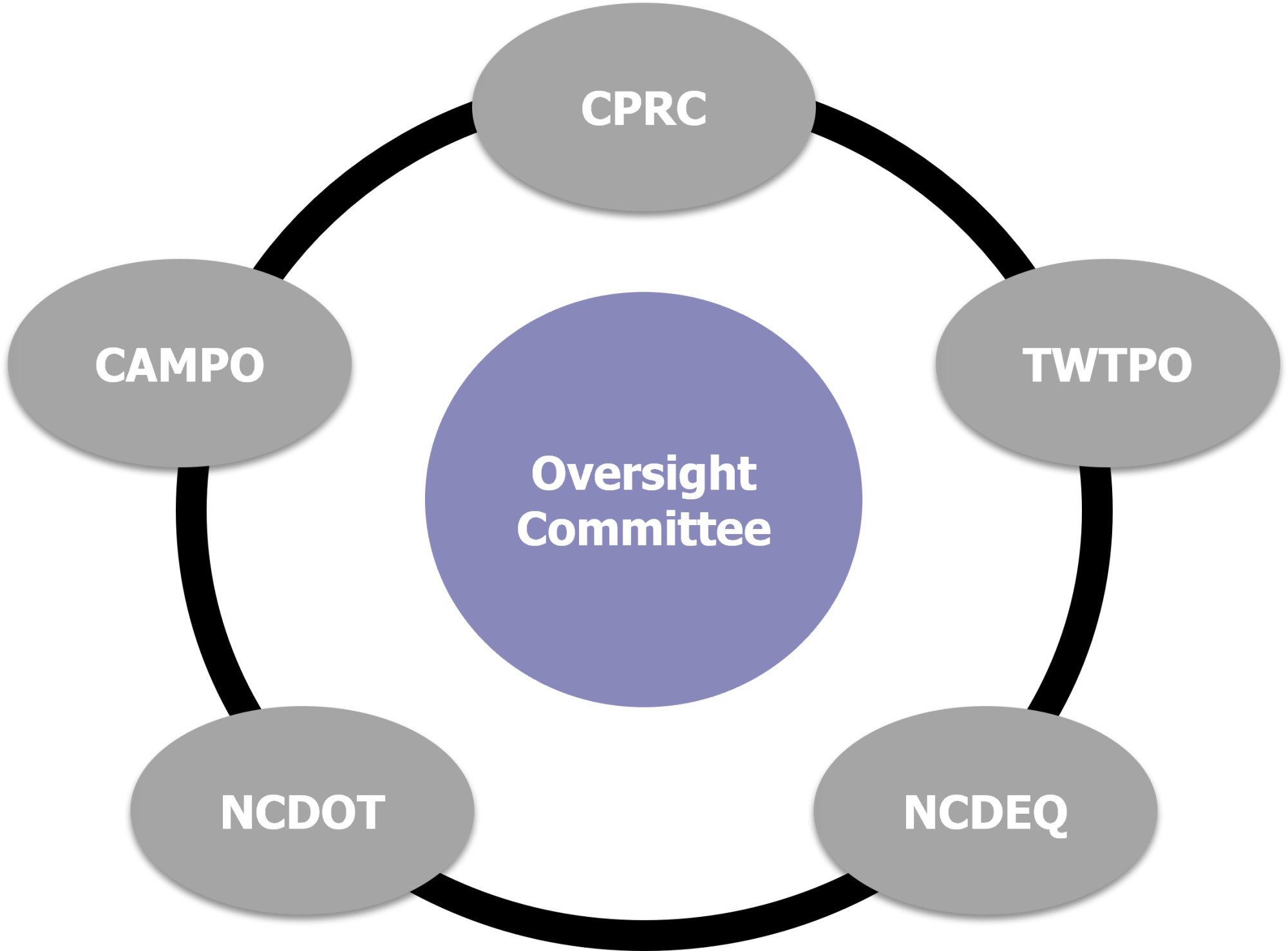
The OC has two additional members in advisory roles. These represent the North Carolina Department of Environmental Quality (NCDEQ) and Central Pines Regional Council (CPRC). The OC provides overall policy direction and guidance to the grant program, reviews all the grant applications, and makes the final decisions regarding grant awards. All five members of the OC can be found in the graphic on the left.
Thanks in part to the guidance of the OC, a pilot Community-Based and Nonprofit Organizations RFP was released for FY23 for the first time in the history of the program. For FY25-26, a two year RFP was released for the first time ever too. This multi-year RFP is expected to alleviate the administrative burden of annual application on the grantees and provide them with higher level of stability and continuity around grant work.
CPRC Is An Accredited TDM Organization
Central Pines Regional Council has been recognized as an Accredited TDM Organization by the Association for Commuter Transp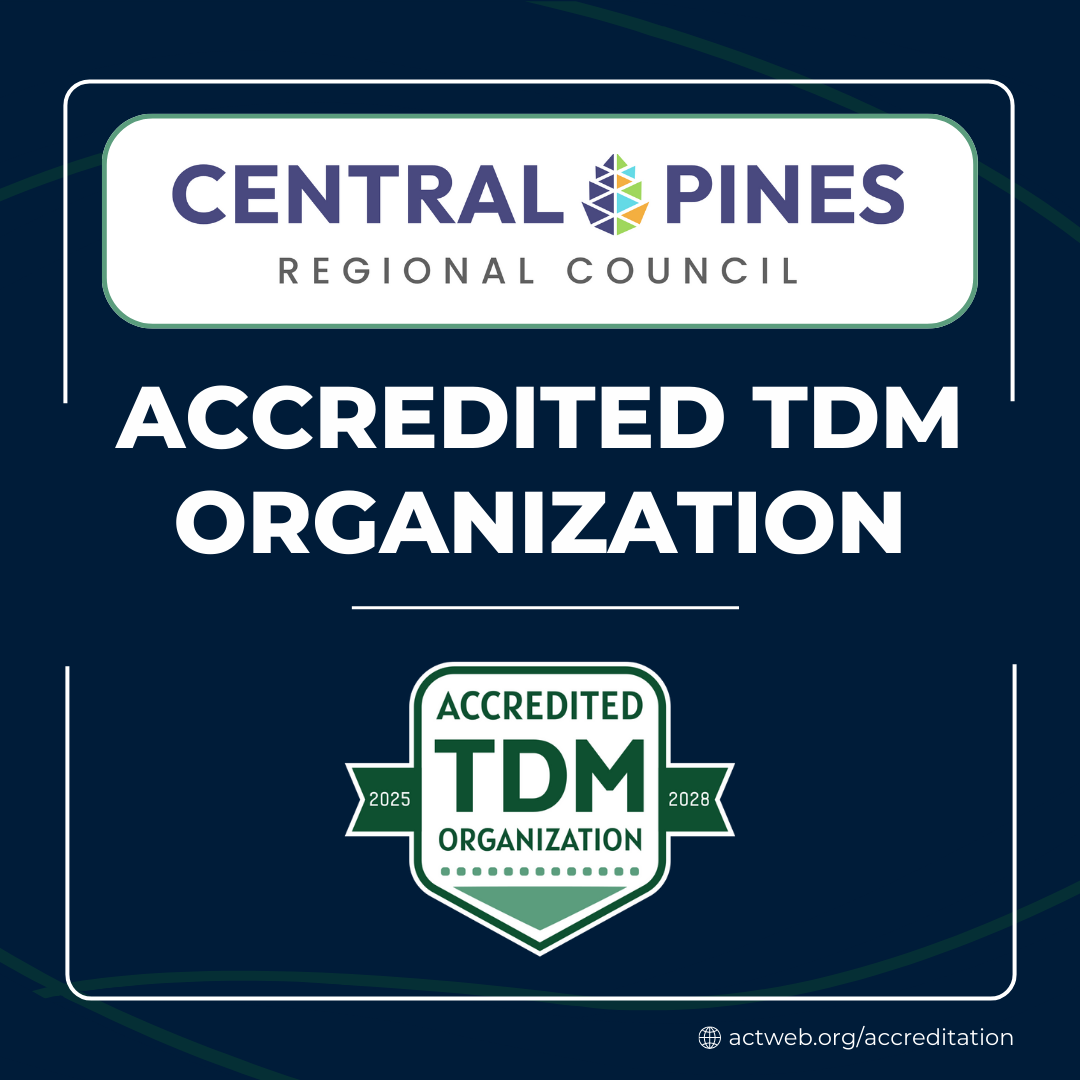 ortation (ACT). This newly minted distinction, in Feb 2025, recognizes organizations meeting industry-wide criteria for commitment to administrative excellence, the field of TDM, and continuous improvement.
ortation (ACT). This newly minted distinction, in Feb 2025, recognizes organizations meeting industry-wide criteria for commitment to administrative excellence, the field of TDM, and continuous improvement.
These high-performing organizations have proven they possess the governance, structure, and integration with the broader field required to deliver effective programs and services. They are the first to achieve accreditation, which will last for three years. At that time, they must provide documentation of their continued excellence and improvement to renew their status.
For more information on ACT accreditation, see here.
The Triangle Transportation Choice grant program requested proposals for a pilot 2-year RFP covering fiscal year 2024-25 (FY25) and fiscal year 2025-26 (FY26) in Dec 2023. It was the first time ever that the program offered grants for a two-year period of performance. The RFP closed in February, 2024 and awards were announced in mid-May.
The award recipients for FY25-26 can be found below.
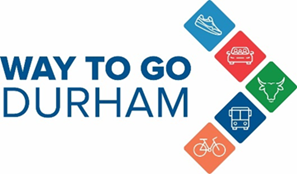
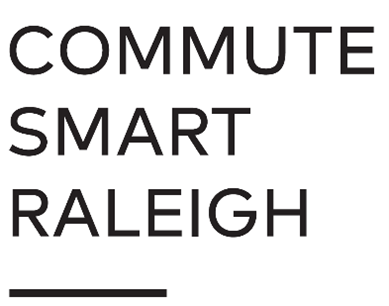
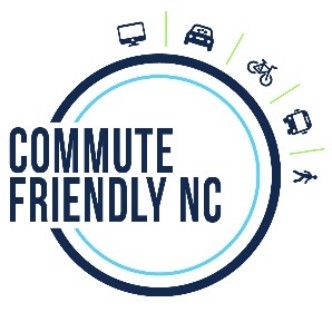
City of Durham | City of Raleigh | Commute Friendly NC
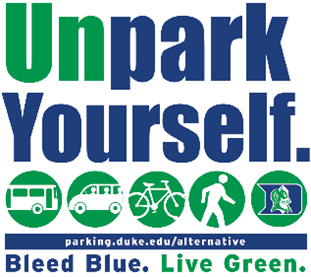
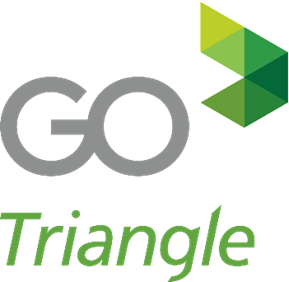
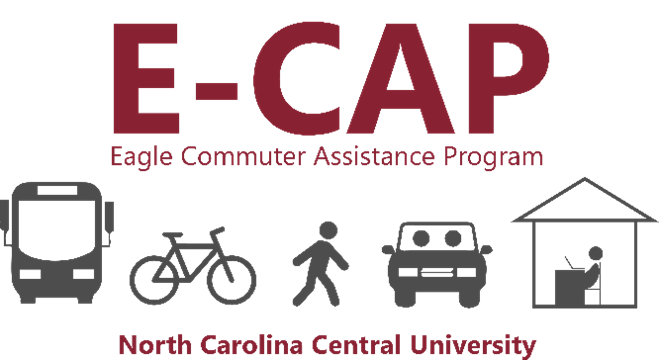
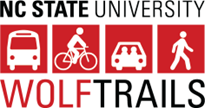
NC Central University | NC State University
Town of Carrboro | Town of Chapel Hill


UNC Chapel Hill | Wake Tech CC
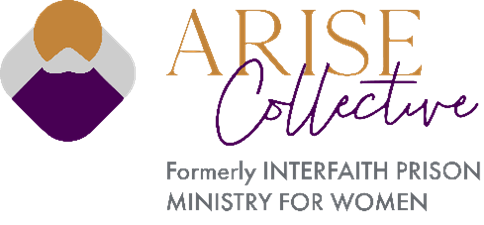
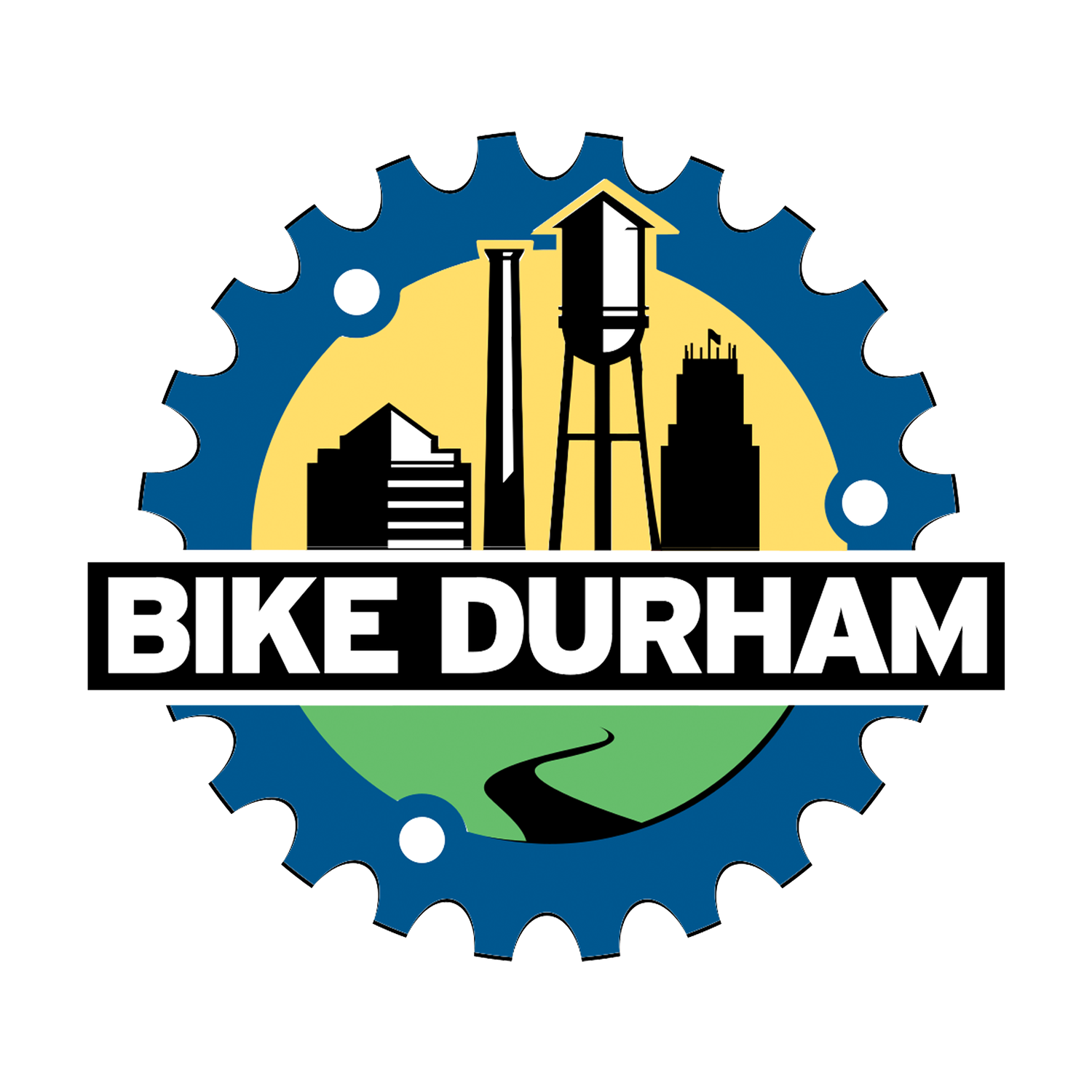

Arise Collective | Bike Durham | Black Girls Do Bike
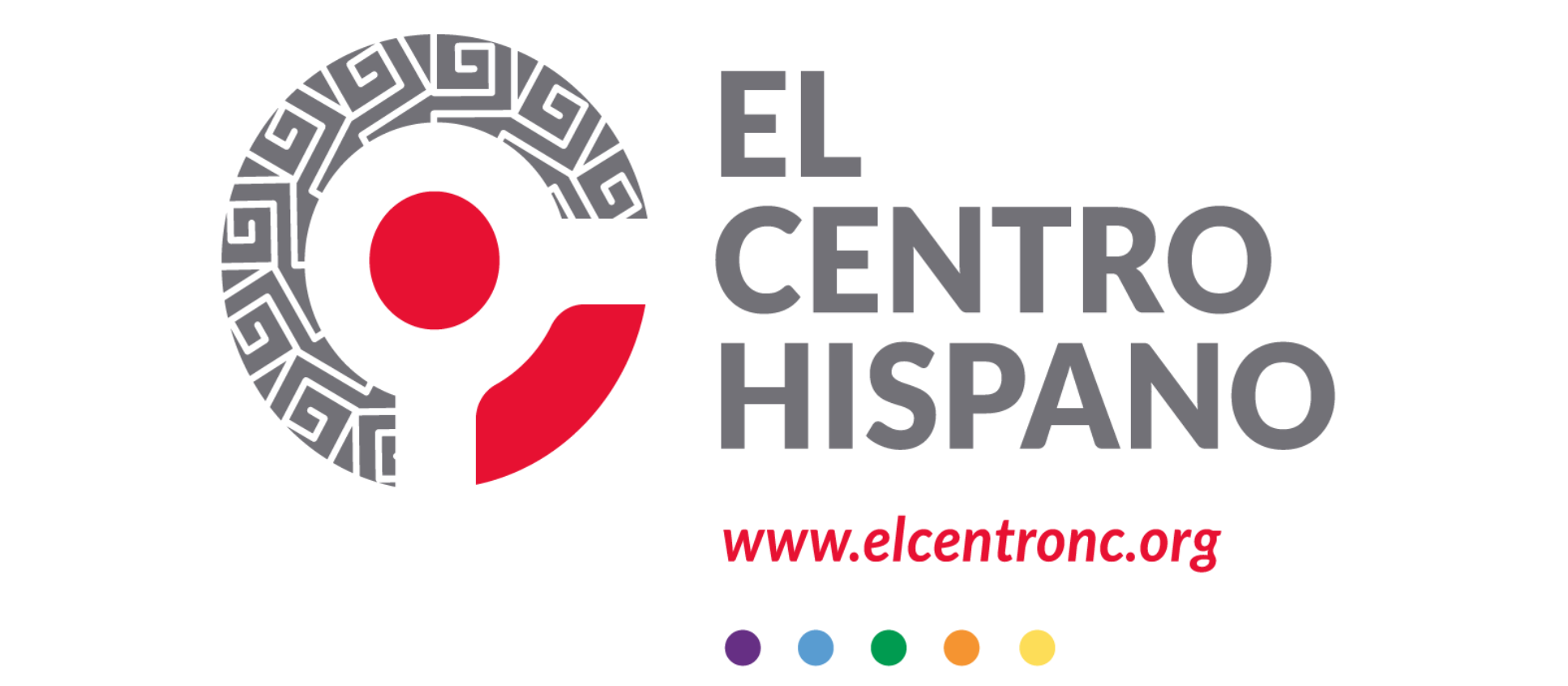

El Centro Hispano | Oaks and Spokes
Habitat for Humanity- Orange County | Southeast Raleigh Promise
Every year, the Triangle Transportation Choices program releases an Annual Impact Report that showcases the many positive effects the program has on the region and its residents. These impacts range from emission reductions to reductions in congestion to improved physical health.
Some highlights from fiscal year 2025 include 5 million avoided vehicle trips and $30 million in savings due to societal benefits. With the program only costing $2.1 million in FY25, the return on investment was over 14 times the cost!
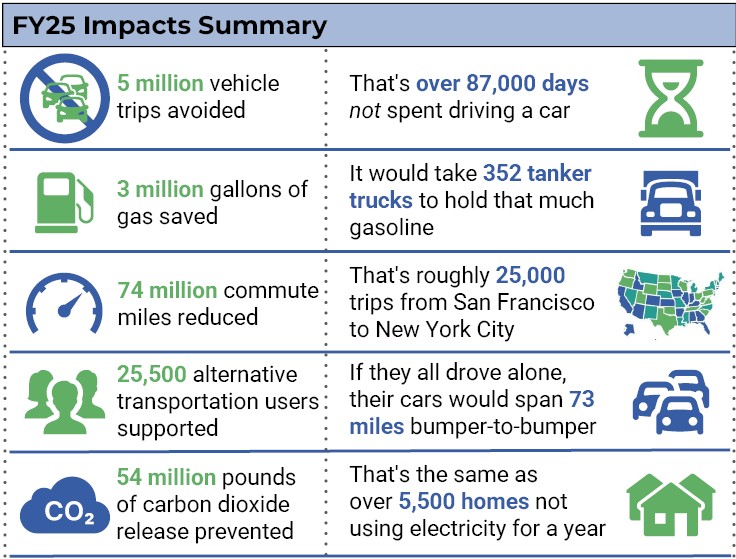
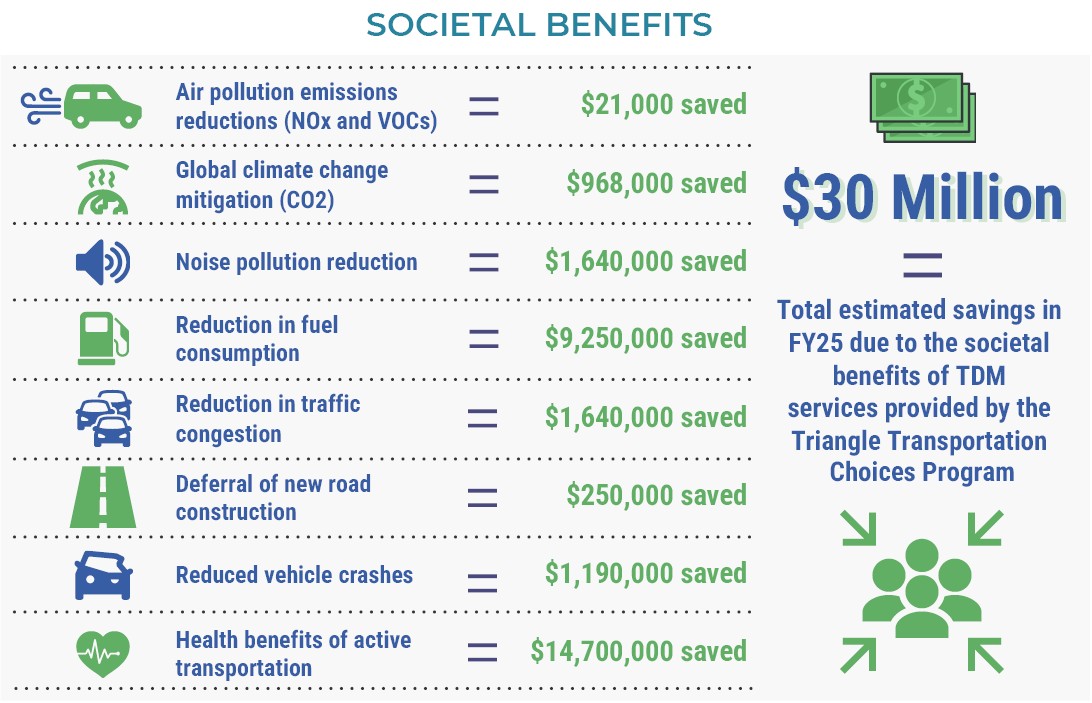
For more information about the program, please read our latest Annual Impact Report's Executive Summary, and Full Methodology.
TDM’s strength as a strategy is reliant on its continuity between the many different local, state and federal stakeholders. The program seeks to seamlessly links NC state policy and funding with local and regional service providers, while drawing from the Metropolitan Transportation Plan (MTP) developed jointly by CAMPO and Triangle West TPO for the Triangle region and NCDOTs TDM Strategic Plan to ensure statewide continuity. The program also looks to connect ideas and strategies laid out in the Durham, Wake, and Orange County Transit Plans.
Meet the team that works on this program!
Shuchi Gupta Principal Planner | Position Vacant For Now | Jenna Kolling Senior Program Analyst | Andres Otero Planner I |
 |  |  | |
| Grant Manager | Grant Administrator | Data Analyst for Program | CFNC Program Coordinator |
If you have questions about the program or think your organization would be a good fit for it, please reach out to Shuchi Gupta at sgupta@centralpinesnc.gov.
